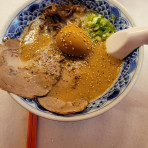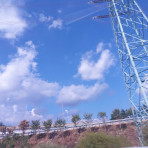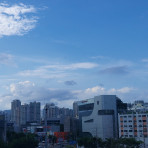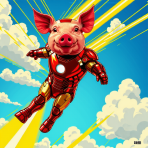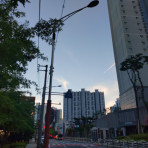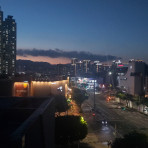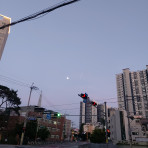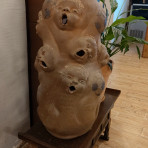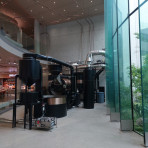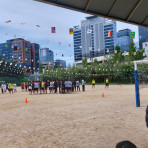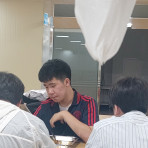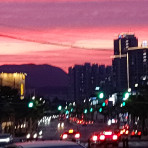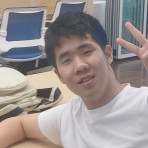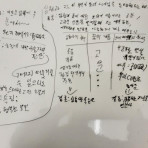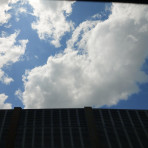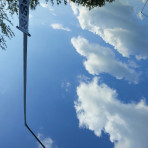Dutch government withdraws permits for ASML to export to China
본문
Tue, 20 Feb 2024 05:14:22 -0500

The Netherlands has decided to withdraw permits for ASML, the leader in semiconductor equipment manufacturing, to export its equipment to China on fears it may be used for military purposes.
In a written response to questions from members of parliament, Dutch Trade Minister Geoffrey van Leeuwen said that China is focusing on foreign expertise, including Dutch expertise in the field of lithography, to promote self-sufficiency in its military-technical development
ASML tools can be used to make advanced semiconductors that can go into “high value weapons systems and weapons of mass destruction,” and the Dutch government is focused on “the risk of undesirable end use” when reviewing export licensing decisions, van Leeuwen said in a written note cited by Reuters.
Netherlands-based ASML dominates the world market for lithography systems, needed by computer chip makers to help create circuitry.
The minister was questioned by a lawmaker on why the government initially granted, then quickly retracted, a license for ASML to export various equipment to undisclosed customers in China. He did not respond directly to the question, but only said several licenses to export advanced equipment to China were granted since the licensing requirement was introduced in September. About 20 similar applications are expected this year, without a breakdown of how many for China.
Under pressure from the United States, the Netherlands last year required ASML to apply for licenses to export its mid-range deep ultraviolet lithography machines. The company’s most advanced tools have not been sold in China.
On Jan. 1 this year, ASML confirmed that some of its export permits for equipment to China were revoked. According to regulations, the company said it will not export any NXT:2000i or more advanced equipment to China, and due to U.S. restrictions, the company also cannot export NXT:1970 and NXT:1980i products to “a small number” of Chinese manufacturers.
Translated by RFA staff. Edited by Taejun Kang and Mike Firn.
The Netherlands has decided to withdraw permits for ASML, the leader in semiconductor equipment manufacturing, to export its equipment to China on fears it may be used for military purposes.
In a written response to questions from members of parliament, Dutch Trade Minister Geoffrey van Leeuwen said that China is focusing on foreign expertise, including Dutch expertise in the field of lithography, to promote self-sufficiency in its military-technical development
ASML tools can be used to make advanced semiconductors that can go into “high value weapons systems and weapons of mass destruction,” and the Dutch government is focused on “the risk of undesirable end use” when reviewing export licensing decisions, van Leeuwen said in a written note cited by Reuters.
Netherlands-based ASML dominates the world market for lithography systems, needed by computer chip makers to help create circuitry.
The minister was questioned by a lawmaker on why the government initially granted, then quickly retracted, a license for ASML to export various equipment to undisclosed customers in China. He did not respond directly to the question, but only said several licenses to export advanced equipment to China were granted since the licensing requirement was introduced in September. About 20 similar applications are expected this year, without a breakdown of how many for China.
Under pressure from the United States, the Netherlands last year required ASML to apply for licenses to export its mid-range deep ultraviolet lithography machines. The company’s most advanced tools have not been sold in China.
On Jan. 1 this year, ASML confirmed that some of its export permits for equipment to China were revoked. According to regulations, the company said it will not export any NXT:2000i or more advanced equipment to China, and due to U.S. restrictions, the company also cannot export NXT:1970 and NXT:1980i products to “a small number” of Chinese manufacturers.
Translated by RFA staff. Edited by Taejun Kang and Mike Firn.
자유아시아방송 제공 및 저작권 소유 | RFA provided and copyrighted -www.rfa.org

The Netherlands has decided to withdraw permits for ASML, the leader in semiconductor equipment manufacturing, to export its equipment to China on fears it may be used for military purposes.
In a written response to questions from members of parliament, Dutch Trade Minister Geoffrey van Leeuwen said that China is focusing on foreign expertise, including Dutch expertise in the field of lithography, to promote self-sufficiency in its military-technical development
ASML tools can be used to make advanced semiconductors that can go into “high value weapons systems and weapons of mass destruction,” and the Dutch government is focused on “the risk of undesirable end use” when reviewing export licensing decisions, van Leeuwen said in a written note cited by Reuters.
Netherlands-based ASML dominates the world market for lithography systems, needed by computer chip makers to help create circuitry.
The minister was questioned by a lawmaker on why the government initially granted, then quickly retracted, a license for ASML to export various equipment to undisclosed customers in China. He did not respond directly to the question, but only said several licenses to export advanced equipment to China were granted since the licensing requirement was introduced in September. About 20 similar applications are expected this year, without a breakdown of how many for China.
Under pressure from the United States, the Netherlands last year required ASML to apply for licenses to export its mid-range deep ultraviolet lithography machines. The company’s most advanced tools have not been sold in China.
On Jan. 1 this year, ASML confirmed that some of its export permits for equipment to China were revoked. According to regulations, the company said it will not export any NXT:2000i or more advanced equipment to China, and due to U.S. restrictions, the company also cannot export NXT:1970 and NXT:1980i products to “a small number” of Chinese manufacturers.
Translated by RFA staff. Edited by Taejun Kang and Mike Firn.
The Netherlands has decided to withdraw permits for ASML, the leader in semiconductor equipment manufacturing, to export its equipment to China on fears it may be used for military purposes.
In a written response to questions from members of parliament, Dutch Trade Minister Geoffrey van Leeuwen said that China is focusing on foreign expertise, including Dutch expertise in the field of lithography, to promote self-sufficiency in its military-technical development
ASML tools can be used to make advanced semiconductors that can go into “high value weapons systems and weapons of mass destruction,” and the Dutch government is focused on “the risk of undesirable end use” when reviewing export licensing decisions, van Leeuwen said in a written note cited by Reuters.
Netherlands-based ASML dominates the world market for lithography systems, needed by computer chip makers to help create circuitry.
The minister was questioned by a lawmaker on why the government initially granted, then quickly retracted, a license for ASML to export various equipment to undisclosed customers in China. He did not respond directly to the question, but only said several licenses to export advanced equipment to China were granted since the licensing requirement was introduced in September. About 20 similar applications are expected this year, without a breakdown of how many for China.
Under pressure from the United States, the Netherlands last year required ASML to apply for licenses to export its mid-range deep ultraviolet lithography machines. The company’s most advanced tools have not been sold in China.
On Jan. 1 this year, ASML confirmed that some of its export permits for equipment to China were revoked. According to regulations, the company said it will not export any NXT:2000i or more advanced equipment to China, and due to U.S. restrictions, the company also cannot export NXT:1970 and NXT:1980i products to “a small number” of Chinese manufacturers.
Translated by RFA staff. Edited by Taejun Kang and Mike Firn.
좋아요2
이 글을 좋아요하셨습니다
관련링크
등록된 댓글이 없습니다.

